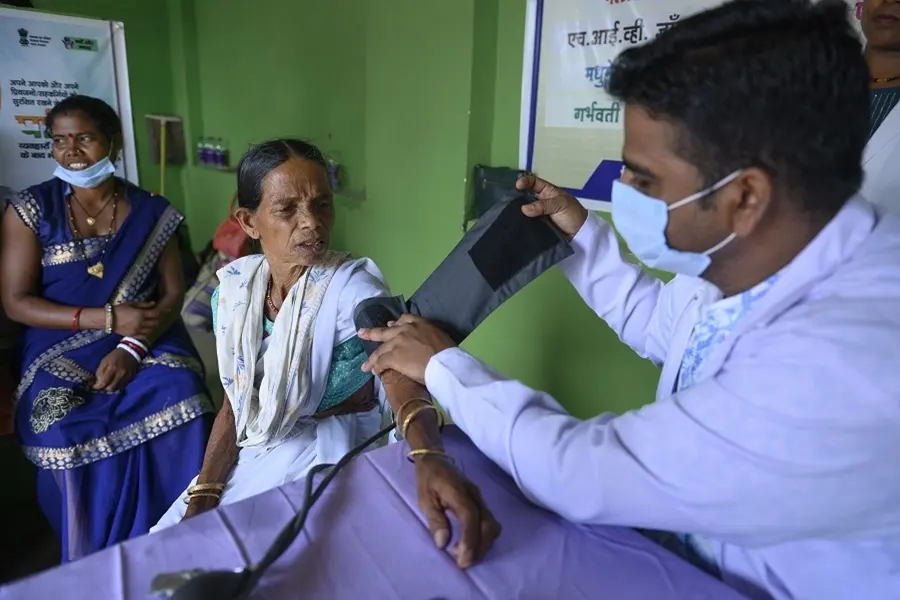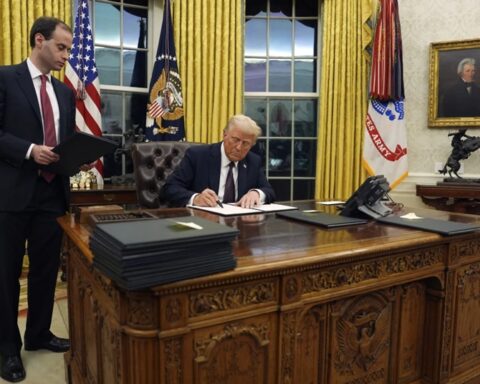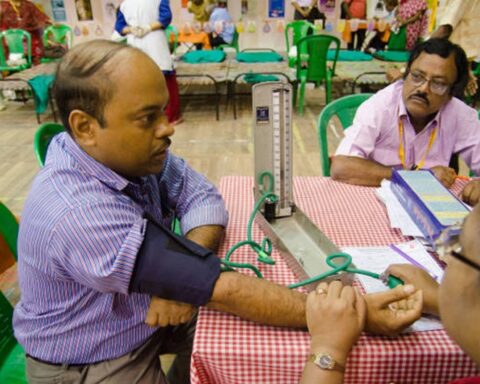NEW YORK (WABC) — A new report by The World Health Organization (WHO) found that four out of five people with high blood pressure are not being properly treated.
The report focused on the global detriments of hypertension as well as recommendations on how to conquer the “silent killer.”
The condition may lead to stroke, heart attack, heart failure, kidney damage and other health problems.
The number of people living with hypertension (blood pressure of 140/90 mmHg or higher or taking medication for hypertension) has doubled between 1990 and 2019. What was 650 million is now 1.3 billion.
Almost half of the people living with the condition are completely unaware of it.
More than three quarters of adults living with hypertension reside in low- and middle- income countries.
Older age and genetics may increase the risk of high blood pressure. Controllable factors like a high-salt diet and lack of physical activity can also play a part in increasing the risk for hypertension.
Lifestyle changes such as eating healthier and being more active can help lower blood pressure. However, some people may be in need of medication that can control hypertension effectively and prevent further complications.
“Most heart attacks and strokes in the world today can be prevented with affordable, safe, accessible medicines and other interventions, such as sodium reduction,” said Michael R. Bloomberg, WHO Global Ambassador for Noncommunicable Diseases and Injuries. “Treating hypertension through primary health care will save lives, while also saving billions of dollars a year.”
Prevention, early detection and effective management are cost-effective interventions. The economic benefits of improved hypertension treatment programmes outweigh the costs by about 18 to one.
“Hypertension control programmes remain neglected, under-prioritized and vastly underfunded,” said Dr. Tedros Adhanom Ghebreyesus, WHO Director-General. “Strengthening hypertension control must be part of every country’s journey toward universal health coverage, based on well-functioning, equitable and resilient health systems, built on a foundation of primary health care.”
Adequate treatment for hypertension is not only affordable but effective. It could prevent 76 million deaths, 120 million strokes, 79 million heart attack and 17 million cases of heart failure between now and 2050.
“Every hour, more than 1,000 people die from strokes and heart attacks,” said Dr. Tom Frieden, President & CEO, Resolve to Save Lives. “Most of these deaths are caused by high blood pressure, and most could have been prevented.”
The report elaborates on the benefits of implementing WHO-recommended effective hypertension care, which includes five efficient components.
The report is being launched during the 78th Session of the United Nations General Assembly which addresses progress for the Sustainable Development Goals including health goals on pandemic preparedness and response, ending tuberculosis and attaining Universal Health Coverage. Better prevention and control of hypertension will be essential to progress in all of these.
Read the full report here.





